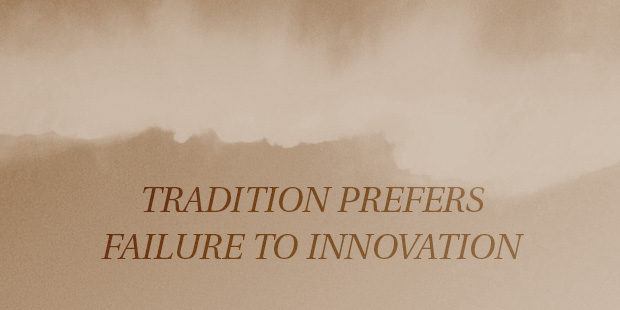
Tradition Prefers Failure to Innovation
I remember the first time I heard of IDEO – a famous firm that seemingly few have heard about – a company that helps others innovate. It was at a company meeting with Fellowship Technologies where CEO Jeff Hook was inspiring us to help innovate in the church market. I was surprised at the number of products that we use today were actually birthed at IDEO on behalf of the company that gets all the credit. Notable examples are Apple’s first mouse, Microsoft’s second mouse, and the Palm V PDA. Major clients have included Procter & Gamble, PepsiCo, Microsoft, Eli Lilly, Ford, and Steelcase.
What struck me most about them was that they’re not an invention firm, but an innovation firm.
I think innovation is the art and science of taking something that exists and improving on it in a significant way. This, of course, has huge implications for local churches, who have the timeless message that never changes but innumerable methods for applying that message to culture. Where I think churches trip up along this journey is when traditions become more important than the teachings from the text.
Traditions begin as personal preferences. I made this simple statement in a blog a couple of weeks ago:
“I have preferences. We all do. Some of these preferences have meaning to us, so we create a consistent pattern around them. Before you know it, we’ve told others how to operate within our preferences. One step removed from us, what was once a preference is now a tradition. I think traditions are a lot like money: they’re neither good nor bad – it’s all about how you approach it. If a tradition gets in the way of loving people, it’s a clear sign that the tradition has to change or go.”
It is my personal experience and opinion that the main reason mainline churches are failing and dying is because they’re holding onto denominational or local traditions at the expense of connecting culturally with their communities. Further, they hardly ever bother to acknowledge the other Christian denominations (or non-denominational churches) in any of their community efforts. Even in (perhaps especially in?) small town, rural settings, the row of various churches along main street fight to keep their own and avoid being associated with – much less collaborating with – these other faithful flocks. Even Jesus himself said “if they’re not against us, they’re for us”.
Traditions are powerful and can be helpful – as long as they follow the heart of the Father and not merely the letter of the law. I do not believe traditions are inherently bad, but the very nature of perpetuating traditions eschews innovation. We live in a time when change is constant and communication is real-time. At what point can a tradition offer itself on the altar and die to facilitate needed innovation?
Our culture is moving on. Perhaps for the sake of the Gospel we can move on and innovate, too.
QUESTION: Is tradition really in the way of innovation? What say you?
Read more from Anthony here.













